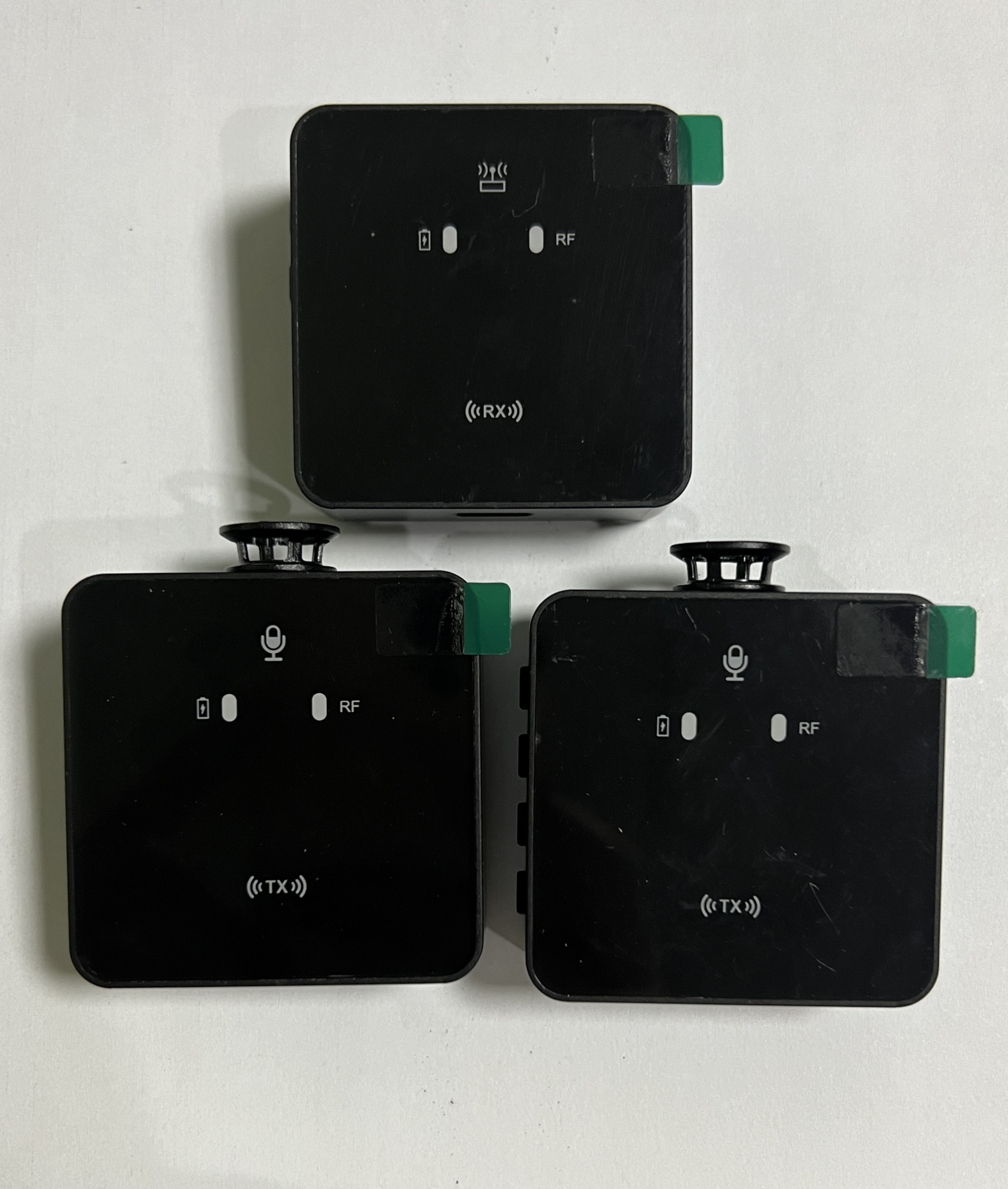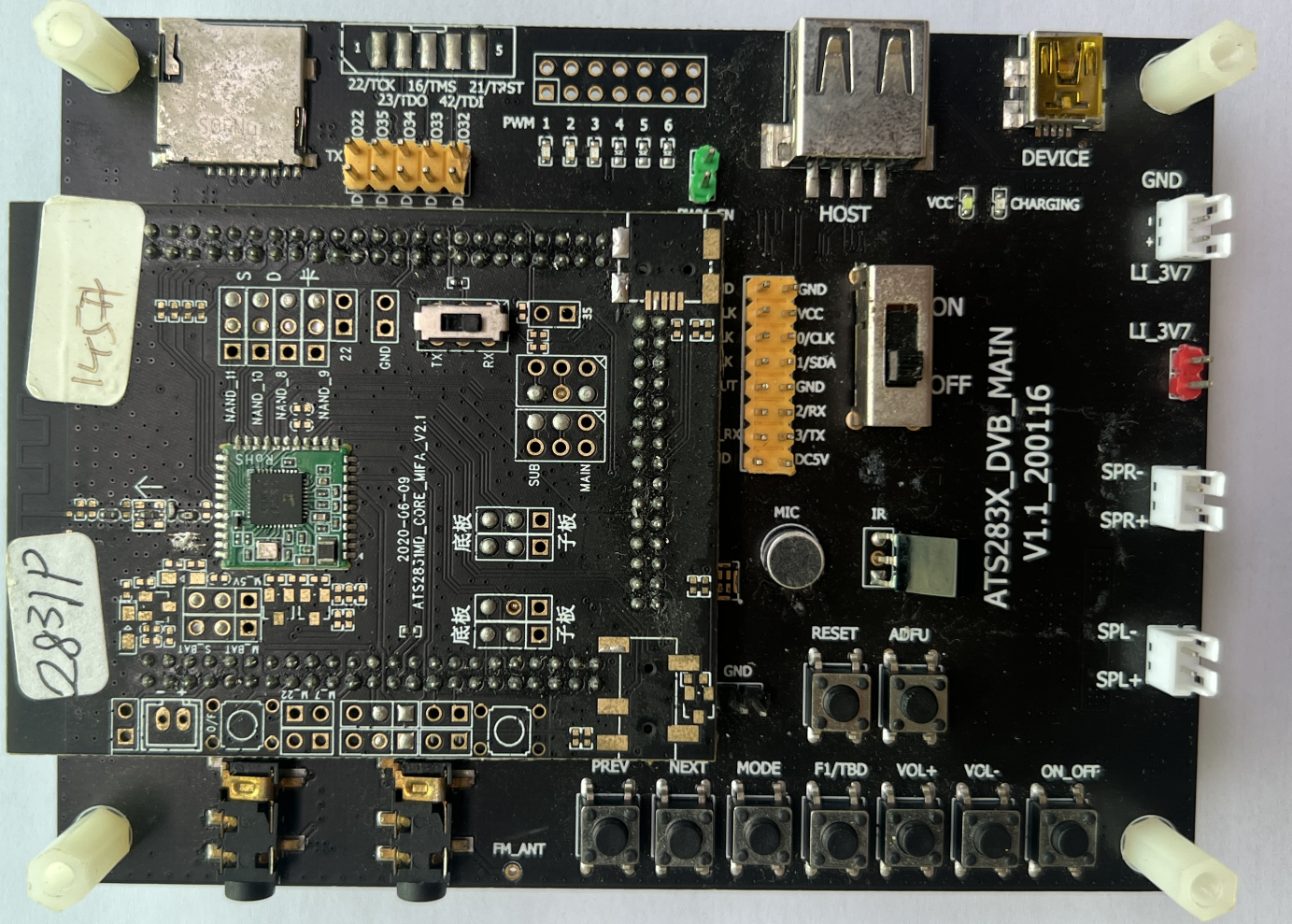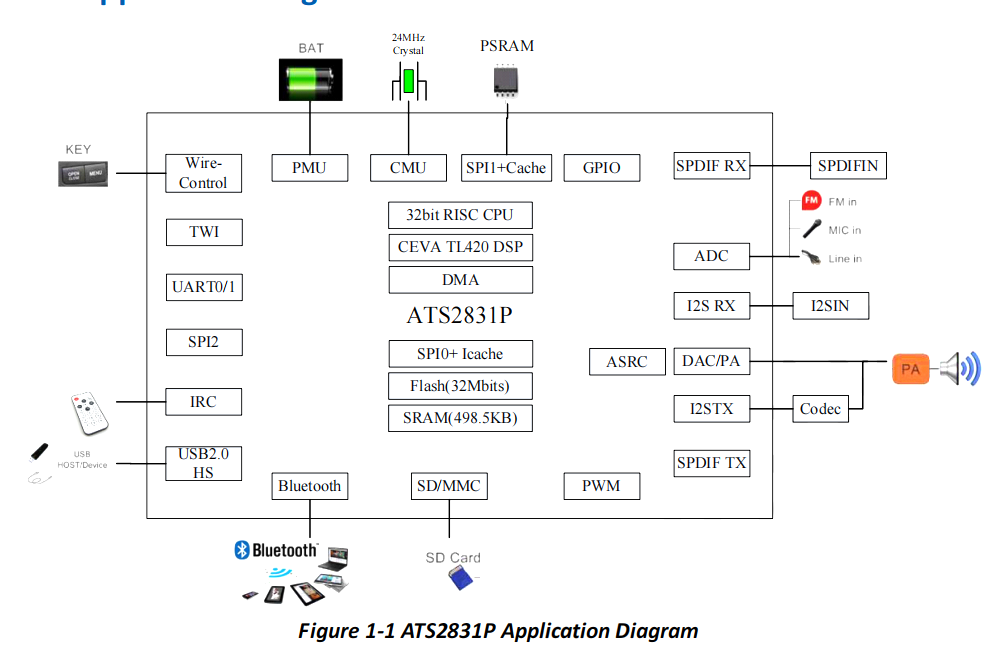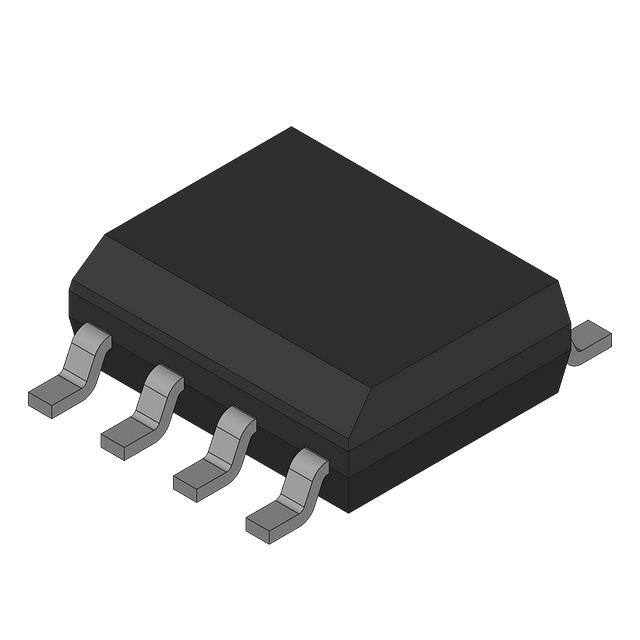Based on the Actions ATS2831P two-transmit and one-receive ultra-low latency wireless microphone solution
Based on the Actions ATS2831P two-transmit and one-receive ultra-low latency wireless microphone solution, it adopts a CPU+DSP dual-core heterogeneous architecture, with high sound quality, low latency, and high integration. A single chip can support display and internal recording functions, ultra-low latency, low power consumption, and high performance. It is mainly used in wireless microphone products.
Some main application scenarios of wireless microphones:
1. Video recording: Wireless microphones can solve the problem of long-distance reception during video recording, making the sound pickup clearer and more natural.
2. Live broadcast industry: In live broadcast, the anchor can stably transmit sound signals within the effective distance range, which can realize diversified live broadcast scenes, improve the quality of live broadcast and the audience's audio-visual experience.
3. Interview and recording: Wireless microphones can easily conduct interviews and recordings in various environments without being restricted by wires, improving work efficiency and sound quality.
Scenario application diagram

Display board photo

Solution block diagram

Core technology advantages
The chip integrates Bluetooth radio frequency (RF) and baseband, power management unit (PMU), audio codec and microcontroller unit (MCU) and other modules. The Bluetooth transmission power is up to 10dBm, the receiving sensitivity is -95dBm, the specifications are complete, and the performance is leading. Supports one-to-two ultra-low latency, supports linein, USB, I2S, MIC, SD/EMMC, SPI and other audio input sources, supports full-format audio decoding, supports screen display, supports HFP AG 16K high-definition calls, and supports two-way 48K high-definition voice transmission at the same time.
Solution specifications
BT Version: V5.3
CPU: 32bits RISC@264MHz
DSP: 32bits DSP@342MHz
RAM:Build-in 498KB
SPI norflash:Build in 32Mbits
Flash Max TX Power (BR): 10dBm
A2DP: V1.3.2 SRC/SNK
AVRCP: V1.6.2 TG/CT
HFP: V1.8 AG/HF
LE audio: support
Dual headset connections: supported
ACT-LL (Low latency):√/10ms
Transmit audio input source: LINEIN/USB/SPDIF/SD/EMMC/I2S/ MICIN
External RF PA: support
USB: USB2.0
HS Display:SPI LCD
Package: QFN40 (5X5mm)


